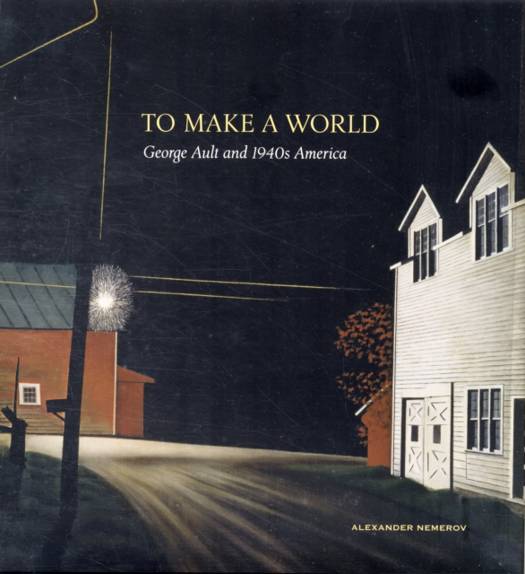
- Retrait gratuit dans votre magasin Club
- 7.000.000 titres dans notre catalogue
- Payer en toute sécurité
- Toujours un magasin près de chez vous
- Retrait gratuit dans votre magasin Club
- 7.000.0000 titres dans notre catalogue
- Payer en toute sécurité
- Toujours un magasin près de chez vous
Description
An American painter usually associated with the Precisionist movement, George Copeland Ault (1891-1948) created works that provide a unique window onto the uncertainty and despair of the Second World War. Despite early commercial success in the 1920s, Ault eventually withdrew from both artistic and political worlds in 1937 and set up his studio in a tiny house in Woodstock, New York, where he produced evocative scenes of barns, telephone wires, and streetlights that utilize precise alignments and geometries to impose a symbolic order on a world in crisis.
To Make a World is the first publication on Ault in more than two decades, and it features nearly twenty of Ault's paintings alongside those of his contemporaries, including Edward Hopper, Rockwell Kent, and Andrew Wyeth. Author Alexander Nemerov explains that despite Ault's remote location and reclusive lifestyle, his paintings represent his fear for the precarious state of the world and reflect an emotional response shared by many artists and the nation at large.
Spécifications
Parties prenantes
- Auteur(s) :
- Editeur:
Contenu
- Nombre de pages :
- 152
- Langue:
- Anglais
Caractéristiques
- EAN:
- 9780300172393
- Date de parution :
- 17-05-11
- Format:
- Livre relié
- Format numérique:
- Genaaid
- Dimensions :
- 267 mm x 287 mm
- Poids :
- 1465 g

Les avis
Nous publions uniquement les avis qui respectent les conditions requises. Consultez nos conditions pour les avis.






